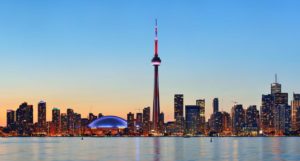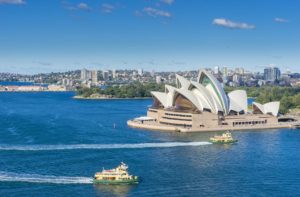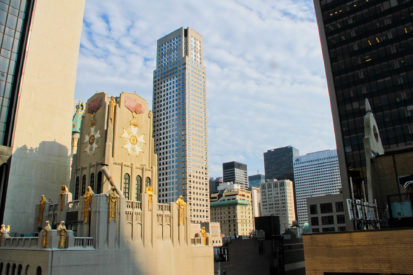Immigration updates for the AMER and APAC regions
Americas
Canada: Vaccination certificates mandatory for entry visa applications
The new National Occupational Classification (NOC) system will shift from a four-digit number to a five-digit code to categorize each occupation. This will take effect in the second half of 2022.
The selection of the appropriate NOC is one of the most significant components of an immigration application. It’s a nationally recognized and standardized method used by the Immigration, Refugees, and Citizenship Canada (IRCC) to evaluate the work experience of applicants.
The Canadian government will divide the degree of skill of each occupation (known as Skill Levels), into six categories to better reflect the level of Training, Education, Experience, and Responsibilities (TEER) of each position inside the new five-digit code.
This summary was prepared using information obtained from the Canadian Citizenship & Immigration Resource Center (CCIRC).
United States: Revision of existing guidelines for international arrivals
Effective November 8, 2021, all non-immigrant, non-citizen air travelers to the United States will be required to be fully vaccinated and provide proof of their vaccination status before boarding a flight to the United States.
Exceptions to this policy are limited to:
- Those under 18
- People medically unable to receive the vaccine
- Emergency travelers who do not have timely access to a vaccine
U.S. citizens and Legal Permanent Residents (LPRs) who are eligible to travel, but are not fully vaccinated, will need to provide proof of a negative Covid-19 test one day before their flight’s departure.
Processing backlogs at U.S. consulates are expected to increase further, which will negatively impact travel for those who need a U.S. visa.
This summary was prepared using information obtained from the White House website.
Disclaimer: The above information is provided for general information purposes only and should not be construed as legal advice. If you have any further inquiries regarding the applicability of this information, please contact Rafael Pavanelli, AMER Immigration Manager.
Asia-Pacific
Australia: Quarantine requirements
Effective November 1, 2021:
- Overseas passengers arriving in New South Wales who have been fully vaccinated with a recognized vaccine will be exempt from quarantine. Unvaccinated passengers will be required to complete 14-days of hotel quarantine, which is restricted to 210 arrivals per week.
- Overseas passengers arriving in Victoria who have been fully vaccinated with a recognized vaccine will be exempt from quarantine. Unvaccinated passengers will be required to complete 14-days of hotel quarantine, which is restricted to 250 arrivals per week. All arriving passengers will also be required to undertake a Covid-19 test within 24 hours of arrival into Victoria.
This summary was prepared using information obtained from the New South Wales and Victorian government.
China: Some dependent families are now able to apply for PU Invitation Letter
Each city will have its own regulations, with some already opening for family PU applications, and others still closed. Moreover, there could be differences in the way each district implements the policy, and each case must be double-checked with the respective authorities.
Below is a list of cities that have confirmed opening for the family PU Invitation Letters:
- Shanghai: open for both completely new arrivals and dependent-only applications where the principal employee is already in Shanghai.
- Chaoyang, Beijing: only dependents who can provide the principal employee’s Beijing-issued Residence Permit will be allowed to apply (i.e., the employee must have relocated first to Beijing).
- Haidian, Beijing: open for both completely new arrivals and dependent-only applications where the principal employee is already in Haidian.
- Suzhou: only for completely new arrivals, dependent-only applications where the principal employee is already in Suzhou are not accepted
- Nanjing: open for both completely new arrivals and dependent-only applications where the principal employee is already in Nanjing
- Tianjin: dependents who can provide the principal employee’s Tianjin-issued Residence Permit will have a higher chance of acceptance (i.e., the employee must have relocated first to Tianjin); newly arriving families may find that only the principal employee’s application will be accepted.
Vaccination certificates for those qualified to be vaccinated in their home countries are being required across the whole country.
Note that the respective Foreign Affairs Offices have only agreed to accept the applications, but approval is not guaranteed.
This summary was prepared using information obtained from the Foreign Affairs Offices.
Indonesia: PCR testing for all arrivals
All visitors coming to Indonesia require a PCR result 72 hours before their flight no matter what type of visa they use or their age. In the case that babies are exempt from PCR testing from the departing location, airlines should be aware that this is a requirement for Indonesia.
This summary was prepared using information obtained from the Consulate General of the Republic of Indonesia.
Malaysia: My Travel Pass entry and quarantine requirements
Effective November 1, 2021, foreign nationals holding a Long-Term Visit Pass in Malaysia are allowed to enter Malaysia without obtaining approval from the Malaysian Immigration Department (MID) through the My Travel Pass (MTP) / My Entry system provided they have a valid pass. This will be applicable for travelers entering from all countries. Exempted categories (valid pass’) are:
- Diplomat (exemption order) / Dependant and Foreign Maid
- Employment Pass (EP) (I, II, II) / Dependant (DP) and Foreign Maid
- Foreign Maid
- Long Term Social Pass (spouse/children) to Malaysia
- Malaysia My Second Home / Dependant and Foreign Maid
- Pass for a widow to Malaysia
- Permanent resident / spouse / children
- Professional Visit Pass (PVP)
- Resident Pass
- Resident Pass – Talent (RPT) / Dependant and Foreign Maid
- Senior Citizen Pass
- Social Visit Pass (temporary employment)
- Student Pass / Dependant / Escort
The following foreign nationals will still need to apply through the MTP / My Entry system for permission to enter Malaysia:
- Social visit
- Expired pass (long term)
- New EP / DP / RPT / MAID / PVP
- Short term business traveler
Entry procedures upon arrival in Malaysia are still subject to the existing immigration rules that are still in force as well as health screening and quarantine procedures by the Ministry of Health Malaysia (MOH).
Reduced quarantine days:
The quarantine period for fully vaccinated travelers is reduced from 14-days to seven days. As well as this, the quarantine period for unvaccinated travelers or travelers with incomplete vaccinations is reduced from 14-days to ten days. For vaccines that require two doses, the vaccination period must be over 14-days from the second vaccination date and for vaccines that require one dose, the vaccination period must be over 28-days from the vaccination date.
PCR Covid Tests are still required for travelers traveling to Malaysia three days before departure to Malaysia. In the absence of this test result, travelers will be required to undergo a ten day quarantine regardless of being fully vaccinated. No exemptions for minors.
This summary was prepared using information obtained from the government of Malaysia (in Malay).
New Zealand: Travel restrictions
Non-New Zealand citizen air travelers aged 17 and over now need to be fully vaccinated to enter New Zealand. At the time of registering with the Managed Isolation Allocation system, travelers are required to declare their vaccination status and present proof of vaccination to their airline and Customs officers on their arrival to New Zealand.
Travelers from Niue and the Cook Islands may enter New Zealand quarantine-free. Quarantine-free travel between Australia and New Zealand is suspended and will be reviewed in mid to late November.
Travelers who are returning to New Zealand from the state of New South Wales, and meet the above criteria, may travel back to New Zealand but will have to enter the managed isolation facility on their return.
All travelers except those from Australia, Antarctica, and the Pacific Islands must show a negative Covid-19 test taken within 72 hours before departure. Individuals transiting through New Zealand will be not subject to this requirement if they remain in the airport. The approved tests are PCR and RT-PCR tests, LAMP tests, and antigen tests.
Beginning November 14, 2021, the quarantine at a government facility for international arrivals will be reduced from 14 to seven days. This is followed by home quarantine until the individual is notified of negative results of a Covid-19 test taken on the ninth day.
This summary was prepared using information obtained from the government of New Zealand.
Singapore: Eased entry requirements
The Ministry of Health (MOH) announced the changes to align border measures with Domestic protocols and evolving Pandemic Conditions in other countries.
Category II: Travellers from Australia, Austria, Bahrain, Belgium, Bhutan, Brunei Darussalam, Bulgaria, Canada, Croatia, Cyprus, Czech Republic, Denmark, Fiji, France, Finland, Germany, Greece, Iceland, Ireland, Italy, Japan, Liechtenstein, Luxembourg, Malta, Netherlands, New Zealand, Norway, Poland, Portugal, the Republic of Korea, Saudi Arabia, Slovakia, Spain, Sweden, Switzerland, Turkey, the United Kingdom, the United States, Vatican City and removed from the list will be Egypt which is now under Category III.
Category III: Travellers from Estonia, Latvia, Lithuania, Maldives, Slovenia and added to the list will be Cambodia, Egypt, Hungary, Indonesia, Israel, Malaysia, Mongolia, Qatar, Rwanda, Samoa, Seychelles, South Africa, Tonga, United Arab Emirates (UAE) and Vietnam.
Resume of Entry to Singapore: All travelers traveling/transiting with a 14-day travel history from Bangladesh, India, Myanmar, Nepal, Pakistan, and Sri Lanka will gradually be allowed to enter Singapore. Travelers from these countries will be classified under Category IV and required to adhere to the current entry requirements.
Please note that entry approvals for travelers from Category IV and South Asia regions into Singapore will be restricted till further notice.
No source available at the time of writing.
Thailand: Quarantine-free travel from 46 countries
The Centre for Covid-19 Situation Administration (CCSA) has now allowed visitors who have been fully vaccinated, and can provide the vaccine certificate from 46 countries, to enter Thailand without any need to undergo quarantine upon arrival. A list of permitted countries and territories can be found here.
Visitors must be fully vaccinated with a vaccine approved by the World Health Organization (WHO), or the Ministry of Public Health of Thailand no less than 14-days before departure. They are required to provide a vaccine certificate (an original paper or a printout of an online vaccine certificate) and proof of a negative RT-PCR test result for Covid-19 taken within 72 hours before leaving the origin country. Travelers are also subjected to have another RT-PCR Covid-19 test upon arrival in Thailand.
Arrivals from countries not on the list, but have already been fully vaccinated, are eligible to enter Thailand under the Sandbox scheme called “Living in Blue Zone”. Travelers are not required to undergo the quarantine but are subjected to have their RT-PCR Covid-19 test upon arrival in Thailand. They can travel within 17 provinces designated as pilot areas (Blue Zone provinces) during the first seven days but must take the second RT-PCR Covid-19 test on day six or seven of stay.
This summary was prepared using information obtained from Reuters.
Thai Ministry of Foreign Affairs (MFA)
The “Thailand Pass” system has been introduced to visitors who are traveling to Thailand in replace of the “Certificate of Entry (COE)” system. The Thailand Pass system is a web-based system designed to make the documentation process of entering Thailand more efficient than the Certificate of Entry application.
Travelers are required to register for the Thailand Pass online via Thailand Pass. The processing time for the Thailand Pass application is approximately three to five days depending on the Thai Embassy or Consulate where the application has been submitted. It is recommended to register for the Thailand Pass at least seven days prior to their expected travel date. Once the application is approved, the Thailand Pass QR Code will be issued for the applicants to present to the Airlines and Thai Border Control Officials.
This summary was prepared using information obtained from the Phuket News.
Disclaimer: The above information is provided for general information purposes only and should not be construed as legal advice. If you have any further inquiries regarding the applicability of this information, please contact Debra Jane Beynon, Regional Immigration Manager (APAC).
We track policy changes in over 120 countries. Find out how we can help you in this short video.




